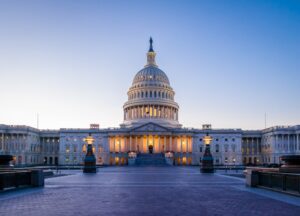The California Court of Appeal continues to decide appeals during the pandemic, and, particularly, one such appeal that will yet again reshape how construction contracts are drafted in California.
The California Court of Appeal for the Fourth Appellate District’s decision in Crosno Construction Inc. v. Travelers Casualty and Surety Company of America undercuts the enforceability of pay-when-paid provisions that effectively provide for open-ended delay in payment to lower-tiered contractors.
Pay-if-paid provisions (not to be confused with pay-when-paid provisions) were held unenforceable as contrary to public policy by the California Supreme Court in 1997.[1] These provisions made payment by the owner to the prime contractor a condition precedent to the prime contractor’s obligation to pay its subcontractor for work performed.
Prior to 1997, pay-when-paid clauses were used as a shield by some surety companies to defer or avoid payment to bond claimants. In contrast, a pay-when-paid clause creates an unconditional promise that a subcontractor will eventually be paid within a reasonable time, and does not shift the risk of nonpayment.
These provision types became common parlance in construction contracts shortly after the Wm. R. Clarke case, replacing the pay if paid clause. More recently, such pay-when-paid provisions have been the subject of litigation.
Crosno Construction Inc. sued a bond surety, Travelers Casualty and Surety Company of America, for a payment on bond claim that was brought days after the prime contractor, Clark Bros Inc., filed suit for nonpayment against the project owner, North Edwards Water District, on a public works project.
The subcontract between Clark and Crosno contained a pay-when-paid clause, and when a dispute arose between Clark and the district, Crosno sought to recover payments owed under the public works payment bond that Clark had obtained for the project. The Court of Appeal addressed the enforceability of the particular pay-when-paid provision in the subcontract between Crosno and Clark, which purported to preclude Crosno from recovering under the payment bond while Clark’s lawsuit against the district remained pending.
At the trial court, Crosno filed a motion for summary judgment on the issue of enforceability. The trial court found the pay-when-paid provision to be unenforceable as impairing Crosno’s payment bond rights in violation of California Civil Code Section 8122, and therefore granted summary judgment in favor of Crosno.
Section 8122 states that a contract provision that waives, affects or impairs a bond claimant’s rights is unenforceable in the absence of a statutory compliant waiver and release. Travelers (the bond surety) appealed arguing, in essence, that Section 8122 was not implicated because the pay-when- paid clause simply set the time for payment and was not a waiver of Crosno’s bond rights.
Critically, in dispute at the trial level, and subsequently on appeal, was whether the pay-when-paid clause was in contravention of Crosno’s bond rights, such that it amounted to an impermissible infringement on these rights as codified under the anti-waiver statute, Section 8122.
The fourth appellate district upheld the trial court’s ruling granting summary judgment, reasoning that if “Travelers could invoke the subcontract’s pay-when-paid clause to postpone its payment bond obligation until some unspecified and undefined point in time when Clark’s litigation with the district concluded, that would unquestionably and unreasonably affect or impair Crosno’s right to recover under the payment bond without either an express waiver or full payment required by sections 8124 and 8126.”
In other words, the court of appeal concluded that the pay-when-paid provision imposed too indefinite a period of time upon which Crosno could rely upon to receive payment, so as to unreasonably affect and impair Crosno’s bond payment rights under Section 8122, and was therefore deemed unenforceable. The appellate court’s holding, however, was restricted to the specific language of the pay-when-paid clause at issue in the case before it.
The Crosno decision also highlights the principal purpose behind the public works payment bond, which is “to provide contractors like Crosno ‘a quick, reliable and sufficient means of payment.'”[2] As the court of appeals points out, if pay-when-paid provisions like the one in Cronso were upheld, then prime contractors and their sureties could circumvent this purpose.
The lessons gleaned from the Crosno decision once again reaffirm the importance for contractors (and their sureties) to carefully consider the language in their subcontracts that set the timing for payment to subcontractors. Until recently, prime contractors and their sureties could still relieve themselves of the burden for payment on public works projects in California to their subcontractors, in the event of owner payment delays, by strategically crafting a pay-when-paid provision defining the time for payment to subcontractors.
The Crosno decision calls such provisions into question. Prime contractors, especially those who frequently do public works projects, should revisit their subcontract agreements to ensure that their subcontractor payment provision describes a more finite time frame upon which their subcontractors can rely upon for payment in the event of owner default or delay, and preserves rights afforded under Section 8122 et al.
It would be advisable to include a set date or number of days after the project’s completion or cessation of work for payment to be made to a subcontractor, in the event of delay of payment from the owner to the prime.
Prime contractors might also consider fixing the length of time for payment to subcontractors to the maximum length of time for exercising bond rights (i.e., 90 days after cessation or completion, plus six months thereafter, so as to preserve bond rights and thereby not circumvent the purpose behind the public works payment bond.
For subcontractors, the Crosno decision emphasizes the importance of adherence to California’s mechanics lien statutes and perfecting bond rights.
[1] (See Wm. R. Clarke Corp. v. Safeco Ins. Co. of America @® (1997) 15 Cal. 4th 882, 887.) .
[2] Citing Cooley v. Freeman @® (1928) 204 Cal. 59, 62.).
[3] (See Cal. Civ. Code §§ 9558, 9356).





